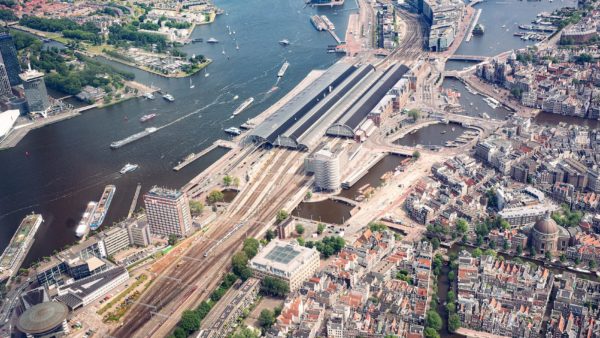The UK government has scrapped plans to electrify three railway lines – in Wales, the English Midlands and the Lake District – on the grounds that the work was no longer needed. The announcement was made yesterday by Chris Grayling, the secretary of state for transport.
The decision not to proceed with the Welsh line has caused particular controversy owing to the government’s repeated assurances that it would go ahead. The Conservative government in 2012 committed to extend electrification beyond Cardiff to Swansea but it became the subject of wrangling between Westminster and Cardiff over who would pay.
(The Tories) have put their own survival, finding £1bn for a deal with the DUP, ahead of everything else and it’s communities like those in south Wales that pay the price– Andy McDonald, shadow transport secretary
In 2014 a deal was agreed whereby the UK government contributed £125m and the Welsh Assembly £170m towards the cost of electrifying South Wales. At that time, it was reported that this would reduce the journey time from Merthyr Tydfil to Cardiff from around 70 minutes to less than 50.Â
Grayling described the decision not to electrify about 100km of track between Cardiff and Swansea – the two largest urban areas in Wales – as “good news for passengers” because they would be spared the disruption of engineering works.
He told the Wales Online website that the work was no longer needed, because “bi-mode” trains, which can switch between diesel and electric power, would run on the track. The trains have been ordered from Japanese engineer Hitachi at a cost of £5.7bn ($7.4bn).
Grayling said: “Introducing the new fleet means all the benefit of electrification between Cardiff and Swansea, but without the months of work, the track closures and the dreaded rail replacement buses. It also means less noise and disruption for communities living near the route.”
Network Rail, the company in charge of Britain’s track, is currently carrying out the electrification of the Great Western railway that connects Paddington Station in London with Wales and Cornwall. The cost of this work has more than tripled since it was first announced, and stood at £2.8bn before yesterday’s announcement.
Network Rail, the company in charge of Britain’s track, describes electrification on its website as the key to a “faster, greener, more reliable train journeys” as well as improving passenger services and supporting economic growth in Britain.
However, the announcement is the latest in a series of setbacks to the plan. Most notably, the government postponed plans to electrify the Transpennine link between Manchester and Leeds, which was thought to be a vital part of the Cameron government’s “Northern Powerhouse” initiative to reduce the development gap between northern and southern England.
Andy McDonald, Labour’s shadow transport secretary, said the decision “betrays a promise to south Wales, and the transport secretary sneaking out the news on the final day before he goes on his summer holidays adds insult to injury.
“The Tories do not act in the interests of the whole UK. They have put their own survival, finding £1bn for a deal with the DUP, ahead of everything else and it’s communities like those in south Wales that pay the price.”
Image: Electrification work under way in Cardiff (Network Rail)
Further Reading:
Comments
Comments are closed.











For the population of these areas and the poor decrease in travel time plus where is the power generation coming from ie new power stations Just goes to show the scheme was poorly thought through by Network Rail and its consultants in the first place Another MBA driven idea by people with limited knowledge of what makes railway work efficiently